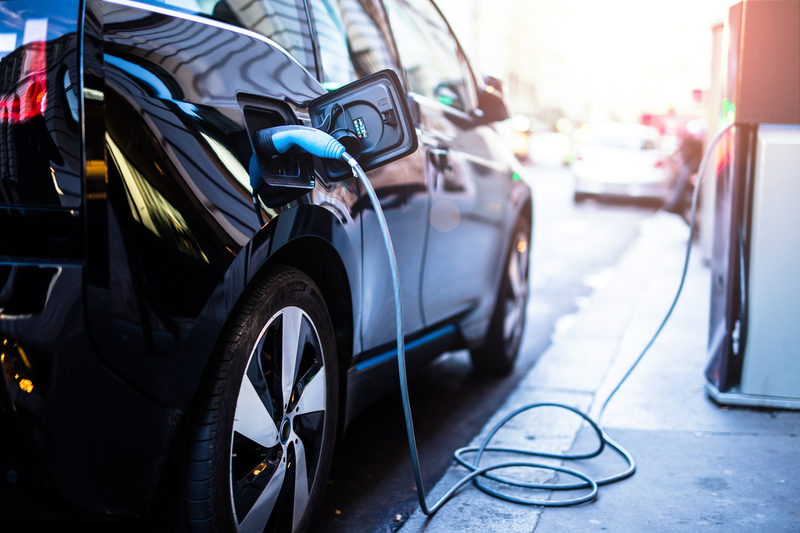EV depreciation uncertainty holding car finance back
 Thomas Parker, Shard Financial Media
Thomas Parker, Shard Financial MediaOver the past couple of decades, there has arguably been no market that has faced more public scrutiny to present its green credentials than those operating in the motor market.

Senior Journalist, covering the Credit Strategy and Turnaround, Restructuring & Insolvency News brands.
The most notable revolution resulting from this has been the shift towards electric vehicles (EVs). Once a niche venture taken up by manufacturers in the Isle of Man, it has now become a critical mainstay of the car industry – with almost every major car maker now having some form, if not a number, of electric offerings.
We’ve also seen governments from across the world seeing making the motor market greener as a key pillar of their 2050 net zero targets. In the UK, the government’s Zero-Emission Vehicle (ZEV) Mandate requires 28% of new car sales to be EVs in 2025, with this rising to 52% by 2028, 80% by 2030, before finally all new vehicles sold having to be emission-free by 2035.
With this deadline looming, we have seen EVs becoming far more prevalent on the roads – with Britain’s millionth EV being registered at the start of this year.
Based on the latest figures from the Society of Motor Manufacturers and Traders (SMMT), 20,935 were registered in January – taking the overall total since 2002 to 1.001m. This coincides with sales of second EVs almost doubling – going up by 90.9% 118,973, although this is just 1.6% of the whole used car market.
And this limited supply is being seen on the ground by car finance providers. At a recent members-only table, hosted by Credit Strategy focused on green lending predominately in the car finance market, one individual said: “In the used car space we’re not seeing as much traction on the green proposition here.”
However, this market – according to another individual in attendance – is expected to “evolve” over time.
They explained: “You’d expect it to move with the market as more green alternative fuel vehicles enter the used market, then naturally you’d expect the motor retail portfolio – which is normally in the used car market – to evolve over towards that as well over time.”
EV depreciation
As EVs begin to enter the used car market space, depreciation has been raised as a concern. One individual, whose business operates predominantly in the used car market, told the roundtable: “There’s still a lot of risks in funding around EVs, particularly around future value – such as depreciation as it continues to be an emerging technology.”
This is backed up by new research from Auto Trader which suggests there were “unsustainable levels of depreciation” in the electric car market – with EVs losing as much as half of their value after three years on the road. This is compared to petrol-powered cars, whose value would fall by around a third.
The online marketplace also says the price of used electric cars could come under further pressure as some motorists return vehicles acquired on three-year leases and as manufacturers cut the price of new vehicles.
As such, and to hit their green lending targets, this individual said they’re looking far more inwardly at how the business operates. They added: “Not necessarily on what you’re funding, but how you’re operating the business.”
Backing this point up, another individual said – when looking at their ESG agenda – the products they provide aren’t “high on the list”. They went on to explain: “We’re having to focus on other areas because it’s not conducive to being able place products higher on the list right now.
“Our one product is higher purchase on secondhand vehicles for subprime customers. Our subprime customers are very much focused on getting a car that they can afford, they’re not thinking about paying an extra £5,000 for an EV – that’s not their priority and we need to be cognizant of that.”
Meanwhile, when it comes to the used EV market – they said we’re in the middle of finding “a price point” and that no one wants to be the “first to go”. They added: “It’s going to take a little bit of time for everyone to know what that market is going to look like, with all the targets that are going to come out.
“Obviously now EVs are more expensive, but over time that’s going to have to come down because of their targets to make sure they’re hitting those proportions that they need to hit and then that will have a knock-on effect on the secondhand market.”
‘The onus is on us to make the right decision for the customer’
It’s no secret that consumers’ spending capabilities have been limited over the last two years or so, and, while we’ve seen prices in the used car market drop by 7.5% based on Auto Trader’s latest retail price index year-on-year – and the cost of used EVs falling by 22.4% – consumers’ finances are still stretched.
The onus is, according to someone on the roundtable, therefore on the car finance provider to ensure a customer makes the right decision.
They explained: “I’m not going to pretend to anyone sitting round an ESG table that we have green products because we don’t – and I can’t change that, it’s not changeable for the foreseeable future, but – as with most things – you can make an honest attempt where you can.
“However, it might not always be good for a customer to be provided with a green product as it might not be good value for them and might put them in a worse situation in a few years’ time. And the onus is on us, not necessarily the customer, to make the right decision for the customer.
“So, until we can be confident that’s what we’d be doing, it’s not responsible for us to start throwing out green products based on – at the moment – a lot of assumptions and educated guesses at best about what the market is going to do.
“But like all things it’s about acknowledging, we’re not going to try and hide away what our product is.”
What role can the government play supporting the EV transition
Key to pushing the EV transition – according to one attendee – is the government. It has already played a crucial role in moving this forward in the business vehicle space thanks to the incentives that are available to companies.
This person explained: “But the private consumer doesn’t, at the moment, have those types of incentives which would help accelerate the transition. The government does have a lever, the challenge it’s got is it’s got find the money from somewhere to accelerate that transition.
“But there is a bit of a contradiction, because of the ZEV Mandate, which could have the consequence of forcing manufacturers to produce EVs, which consumers will eventually have to buy in three- or four-years’ time.
“But right now, in the used car market, people are concerned, confused and nervous about making the switch because of environmental reasons – in fact, I would suggest they’re fewer and far between as it’s still probably driven by affordability and availability.”
And, going forward, according to another attendee, as more EVs enter the market there will need to be some financial support for customers purchasing green vehicles.
Stay up-to-date with the latest articles from the Credit Strategy team
READ NEXT
Climate risks reshape credit analysis and lending practices
Get the latest industry news







